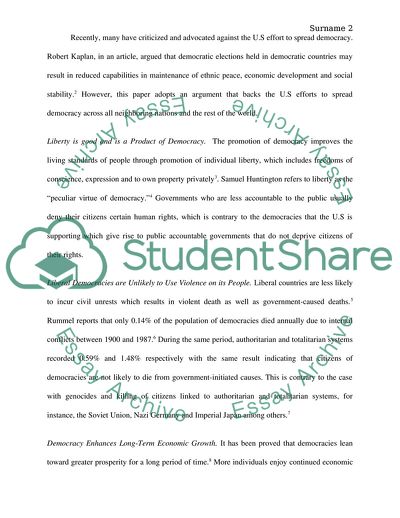Cite this document
(U.S. Export Democracy to Overseas Countries Research Paper, n.d.)
U.S. Export Democracy to Overseas Countries Research Paper. https://studentshare.org/social-science/1783734-8-should-the-us-be-trying-to-export-democracy-to-countries-overseas
U.S. Export Democracy to Overseas Countries Research Paper. https://studentshare.org/social-science/1783734-8-should-the-us-be-trying-to-export-democracy-to-countries-overseas
(U.S. Export Democracy to Overseas Countries Research Paper)
U.S. Export Democracy to Overseas Countries Research Paper. https://studentshare.org/social-science/1783734-8-should-the-us-be-trying-to-export-democracy-to-countries-overseas.
U.S. Export Democracy to Overseas Countries Research Paper. https://studentshare.org/social-science/1783734-8-should-the-us-be-trying-to-export-democracy-to-countries-overseas.
“U.S. Export Democracy to Overseas Countries Research Paper”. https://studentshare.org/social-science/1783734-8-should-the-us-be-trying-to-export-democracy-to-countries-overseas.


